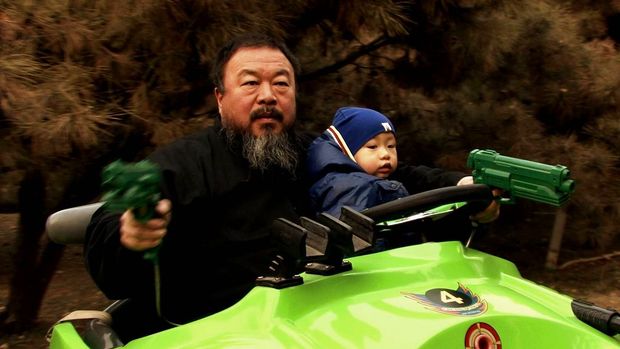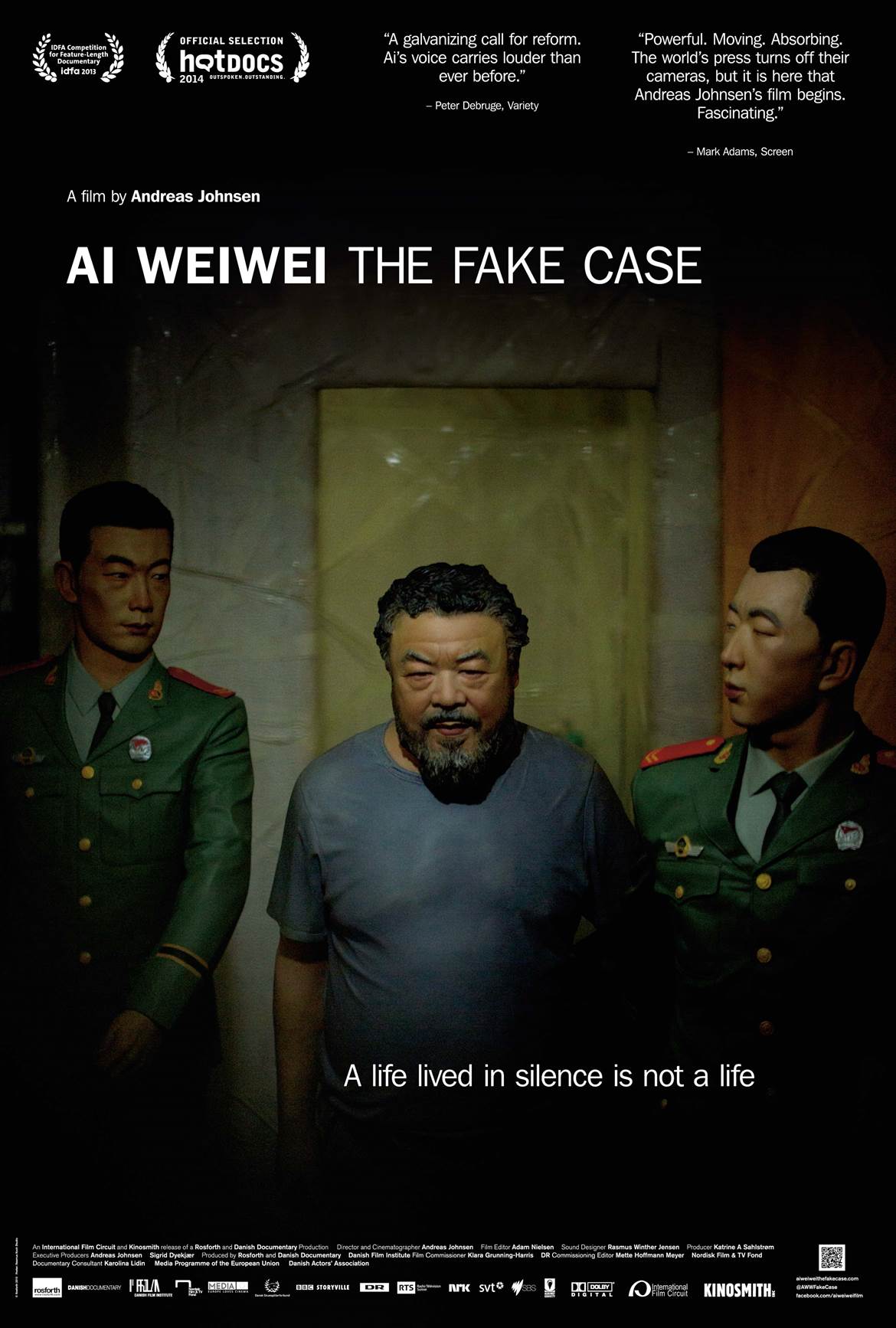By Wun Kuen Ng
A documentary film by Danish director Andreas Johnsen follows Ai Wei Wei, a Chinese contemporary artist and political activist, based in Beijing, after his release from the Chinese government who kidnapped him on April 3, 2011, and kept him in a secret location for 81 days, without informing his family of his whereabouts or the reason for his arrest.
Upon his release, while placed under house arrest, Wei Wei suffers from sleeping disorder and memory lost, faces a hefty $2.5 million lawsuit from the government on bogus charges of tax evasion involving his design company Fake Ltd., later to be named, ‘The Fake Case.’
Despite the Chinese government’s oppressive measures and severe censorship, Ai Wei Wei, a true art warrior, continues to exercise his rights as a human being, voice his opinions, and refuse to live as a dead person. He makes it clear to the Chinese government that he has no secrets, and that it is the government that has to change not him.
The documentary includes touching scenes where Wei Wei asks his mother about the dark political past, normal moments where Ai is playing with his son, unexpected donations pouring in from young people or in the form of folded up money airplanes flown over the wall of the Fake studio, boldly planning and creating an art installation about his detention, a fierce confrontation with police regarding treatment of a cameraman on Wei Wei’s staff, and his lawyer speaks of the lack of judicial review regarding his case and charges at the Court.
How far will the Chinese government go to silence artists who criticize it? Very far. In Wei Wei’s case, the Chinese government kidnapped him, conducted illegal search and seizure of his properties, such as computer and passport, conjured up bogus charges such as pornography in his art work or tax evasion, coerced his accountants and manager to leave Beijing, and warned his lawyer to not represent him anymore.
The police are constantly following him and harassing him. The government only wants to control the expression of its citizens and would spin lies upon lies to reach its objective. There is no check and balance. It is up to the citizens to voice the truth.
How resilient is the spirit? Wei Wei is like a lion that keeps on roaring. During his house arrest, he continues to do his art, creates an art installation, S.A.C.R.E.D about his detention for the 55th Venice Biennale. Other art projects include photos of him with money airplanes stuck on his black suit, and of him sitting on a white chair to show the Chinese government he will not be silenced and that he is in solidarity with the people against the government.
He fights on and countersues the Beijing Local Taxation Bureau for false allegations. On twitter, on the Internet, in his art, he finds ways to criticize the Chinese government. He admits that he is scared at times, but he has to face what is thrown at him.
The fight is never over. The international community, the art world, and the younger generation support him in his fight for human rights and freedom of expression.
The documentary will be released on May 16 at the IFC Center in New York City. It recently received the 2014 Bodil Award for Best Documentary in Denmark. The documentary is an intimate portrayal of an artist and his powerful platform. It is highly recommended for those interested in art, human rights, and China. For more, visit: http://thefakecase.com.



Leave a Reply